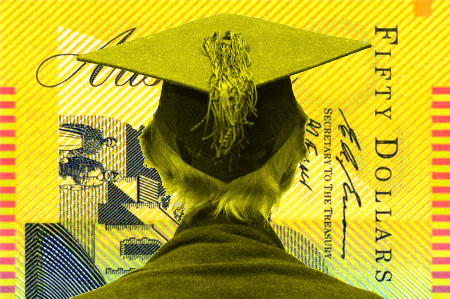Uni leader seeks free courses
 University of Melbourne's Vice-Chancellor, Duncan Maskell, has joined with the Greens and student unions to advocate for free tertiary education.
University of Melbourne's Vice-Chancellor, Duncan Maskell, has joined with the Greens and student unions to advocate for free tertiary education.
Maskell has criticised the prevailing notion that student loans are a natural outcome, saying it is a policy decision rather than the norm.
Drawing from personal experience, he told students and staff on Tuesday evening that he would not have pursued a university education if burdened with a loan.
Maskell called attention to the potential deterrent effect of significant debt on prospective students.
Following the Coalition's job-ready graduates package, individual courses in Australia now cost between $4,000 and $14,500.
Labor’s victory in the 2022 federal election has prompted policy discussions to shape the upcoming universities accord, aiming to be the most significant higher education reform since 2008.
Chair of the Australian Universities Accord Panel, Mary O'Kane, has urged the sector to propose bold changes, while Education Minister Jason Clare has pointed out the importance of equitable access to higher education.
Maskell stressed the need for making education free for domestic students, asserting that the normalisation of student fees has hindered access to higher education for disadvantaged individuals.
He said it is a misconception that university education primarily benefits individuals rather than society as a whole.
Australia is currently falling short of its 2030 target for 20 per cent of university enrolments to consist of low socioeconomic background students.
Maskell argued that the economic burden of providing free education would be outweighed by the positive impact of increased university admissions.
Addressing competitive research grants, Maskell criticised their inadequacy in covering research costs.
Australia's gross domestic spending on research and development lags behind the OECD average.
The University of Melbourne, where Maskell serves as Vice-Chancellor, charges significant fees for international students, with estimates ranging from $100,000 to $180,000 for bachelor's degrees.
While Maskell's support for free university education is commendable, critics argue that the University of Melbourne's own practices have prioritised profit-making over equity.
The university's “Melbourne model” and high fees for certain programs have contributed to the perception that it prioritises students from privileged backgrounds.
The institution's efforts to attract and retain students from underrepresented backgrounds have been sluggish, with low SES, Indigenous, and regional student enrollments showing minimal improvement.








 Print
Print